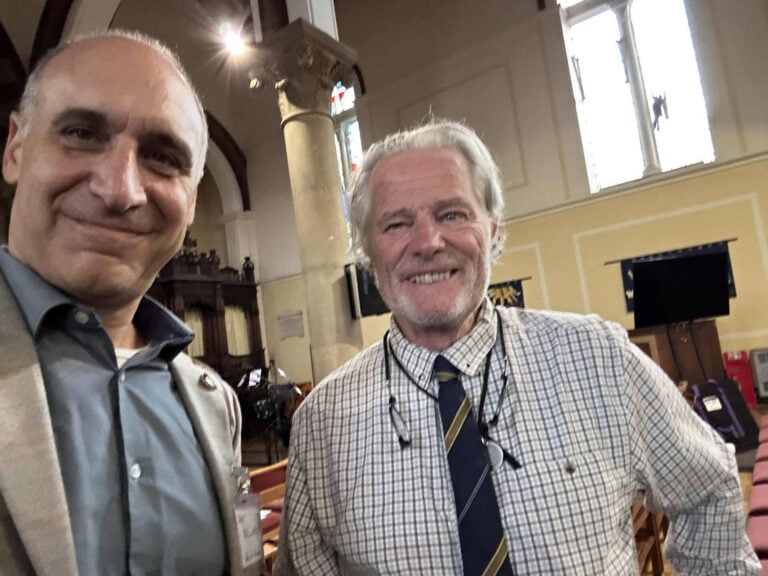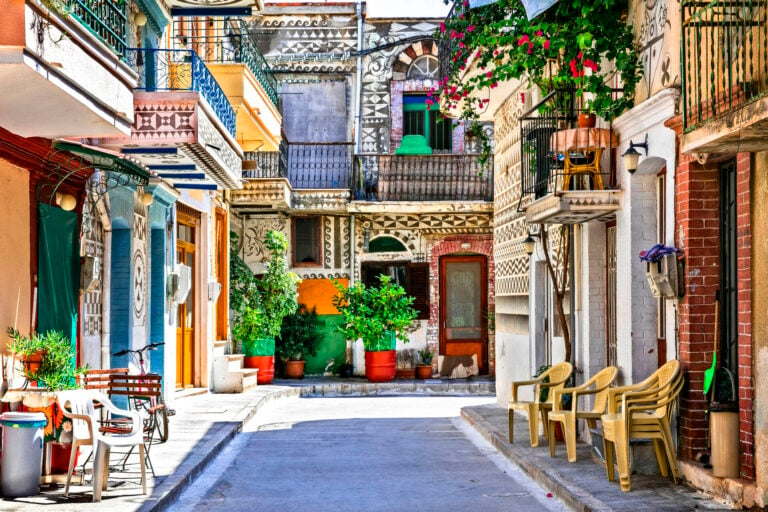The fascinating story of the Chios merchant families lies just beneath the headlines of nineteenth century globalisation, almost hidden in plain sight. Agile, cosmopolitan, and cohesive families survived a holocaust and rose to the commanding heights of commerce on four continents, while nurturing and supporting their long-suffering homeland, even as their very successes blended them into their diaspora societies.
Still a spirit of family and origin remains, particularly an attachment to their ancestral island, whether they live in Richmond, Paris, London, Melbourne, or Athens.
Even if they no longer speak Greek, or confess the Orthodox faith, they are quick to recite their intertwined genealogical trees and birth, marriage, or resting places from Bombay, to Taganrog, to Vienna, Trieste, Alexandria, Syros, Manchester, or New Orleans. Theirs is a quiet pride, passionate yet not easily stirred, an interesting combination of Greek fire with British reserve. But it is there, and on a semi cloudy September Saturday, it was evident.
For my book research on the Chios cotton merchants, I have traveled around Europe and the United States, meeting descendants whose surnames filled Greek history books and once held the world’s commercial newspapers and bourses in awe. One of my contacts, Andreas Argenti, from one of the oldest Chiot commercial families, kindly forwarded me information about an event called “Family of Families,” a gathering of descendants from Chios and Constantinople scattered by commerce and politics to the four corners of the earth. I was touched by his suggestion and recommendation, and after receiving confirmation from the organisers, Christopher and Sarah Long, that I was welcome to attend, I booked my trip to London. Americans often associate Britain with excessive pomp and circumstance, something out of “Bridgerton” or “Downton Abbey” but having lived there as a banker for three years, I know that the real Britain is usually elegant understatement, a place where the Archbishop of Canterbury rides public transportation.

The event was held at West Norwood Cemetery, in the southwestern suburbs of London, about an hour’s journey by London Underground and suburban rail from my West End hotel near London’s iconic Greek Orthodox Cathedral, St. Sophia.
The cemetery has a “Hellenic Enclosure,” complete with a mausoleum built in the style of a Classical Greek temple, where about 250 people, sporting the educated accents of England, Scotland, Provence, Paris, Athens, Chios, and the American East Coast and South, walked among the mausoleums and crypts of their ancestors, meeting relatives whose names were known but faces were not. Names like Ralli, Agelasto, Argenti, Mavrogordato, Rodocanachi, Petrocochino, Caralli, Vlasto, Vagliano, Scaramanga, Schilizzi, Zaccaria, and others, once ubiquitous in the halls of bourses and trade, as well as in Greek history.
After a group photo on the steps of the Classical Greek temple, containing the crypts of several members of the Ralli family, the guests walked to a nearby Episcopal Church just outside the cemetery enclosure. There, we were welcomed by the local mayor of Lambeth municipality, together with a few words by Sir David Ralli, and Nicholas Long, before the main event, a well-organised lecture by Christopher Long, family historian, former journalist, correspondent, and Vlasto family descendant on his mother’s side.

Long’s lecture, “Who are your People?,” was about 70-minutes of contextual information about their ancestral island, Chios, the commercial diaspora centered on the Kambos families, the Chios Massacre of 1822, and their resurrection abroad, from India to New Orleans and all points in between. To accompany the lecture, the church hall was filled with video monitors to provide the entire audience with maps, pictures, and portraits, names to go with faces, and names the audience (and any student of Greek and commercial history) would recognise.
Delivered in a sonorous accent, the presentation struck that rare balance between the general story for those less familiar with the subject and the granular specifics sought by experts. As I told Long after his speech, I had a mental image of hitherto empty footnotes in my book being filled by his information and sources.
After closing remarks by another local councilor, we enjoyed a drink as newfound relatives exchanged contact information and goodbyes. With my friends the Argentis and Agelastos from America, together with their British relatives, we had a dinner in the area before all scattering again.
I felt a great privilege to be included in an event both historic yet familial—this quiet and urbane set of families sought agency in commerce, and in so doing, wrote the playbook for those subsequent immigrants and shipowners who followed. If my book needed an epilogue, I found it at this event.